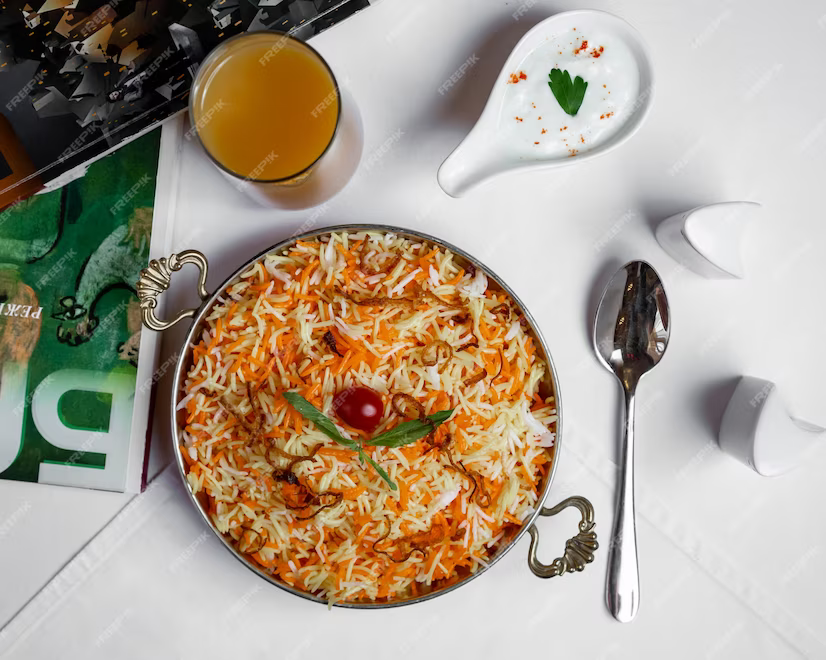How to Choose the Best Cookware Material for Everyday Use
There’s a kind of magic in the kitchen—a comforting rhythm of chopping and stirring. Behind every great dish are fresh ingredients, skilful hands, and the unsung heroes of every cook: the pots and pans that bring recipes to life. However, deciding on the best cookware material can often become challenging.
So, how do you choose what to use on a daily basis from endless options? The fact is that the material of your cookware matters a lot more than you think. If you’ve ever stood in front of the cookware aisle, paralysed by all the choices, this is your guide to finding clarity.
Why Choosing Correct Cookware Material is Important
Cookware isn’t merely a supporting player in the kitchen. It has a direct impact on the flavour, safety and nutrition of your meals. Here’s why choosing the best cooking utensil material matters:
-
Heat Conductivity: Some materials heat up quickly, reducing hot spots and helping food in your cookware cook evenly. Others are better for holding heat, which works well for slow cooking.
-
Health and Food Safety: Reactive materials with acidic ingredients can leach into food and affect the flavour and safety. The best cookware material for health is non-reactive and preserves the integrity of food.
-
Durability and Longevity: High-quality materials like stainless steel are resistant to rust, corrosion, and dents, meaning years of reliable use with minimal wear and tear.
-
Ease of Maintenance: Do you hate tedious scrubbing? The best cookware material for everyday use is dishwasher-safe and scratch-resistant. It will serve you better than those that require regular seasoning or special cleaning techniques.
-
Eco-Friendliness and Sustainability: Good quality pans last for a long time so when you purchase one you may not need to buy another for some time. Using recyclable or sustainability sourced materials also helps in creating a greener kitchen.
Key Factors to Consider When Choosing Cooking Utensils
Every cook has their own distinctive style, and the right cookware should accommodate that style with ease. Whether you’re cooking for a family of six or whipping up a dinner for one after a long day, your utensils should reflect your lifestyle.
Consider these essential factors before making a purchase:
-
Your Cooking Habits: The best cooking ware material will depend on what you are making. Deep-frying requires iron utensils. Non-stick coating is preferred for cooking with minimal oil.
-
Type of Stove or Cooktop: Not all cookware is suitable for all types of stoves. You will need specific varieties for use on induction or electric stovetops.
-
Weight and Handling: Iron cookware can be heavy and may not appeal to those who prefer lighter, nimbler kitchen tools. Aluminium is lighter and easier to lift, particularly for older folks.
-
Food Reactivity: Preparing certain acidic foods (think tomatoes or tamarind) in reactive cookware could change the taste or leach toxic elements. Stainless steel is the best non toxic material for cookware.
-
Budget Constraints: Though stainless steel and iron might be an investment initially, they last longer. Aluminium is affordable for those with casual or occasional cooking needs.
-
Cleaning and Maintenance Needs: Pick the safest cookware material to put inside the dishwasher if you want a seamless experience.
Comparison of Different Cookware Materials
The best cooking ware material depends on your needs. Here’s a comparison of some of the most popular options:
|
Material |
Heat Conductivity |
Durability |
Weight |
Reactivity |
Maintenance |
|
Iron |
Moderate |
Very High |
Heavy |
Reactive |
Requires seasoning & oiling |
|
Stainless Steel |
Moderate |
High |
Medium |
Non-reactive |
Low maintenance; easy to clean |
|
Aluminium |
High |
Medium |
Light |
Reactive |
Needs coating upkeep; mild washing |
Best Cookware Materials for Different Cooking Needs
Different cooking methods benefit from different types of cookware material. Here's a quick table to help you choose the ideal one based on the type of dish or technique you frequently use:
|
Cooking Need |
Recommended Material |
Why It Works Best |
|
Deep frying & heavy curries |
Iron |
High heat retention and deep flavours over time |
|
Fast weekday meals |
Aluminium (with coating) |
Heats up fast and is easy to handle for daily use |
|
Everyday boiling & sautéing |
Stainless Steel |
Strong, non-reactive, and retains shape even with frequent use |
|
Slow-cooked traditional dishes |
Iron |
Perfect for retaining consistent low heat |
|
Cooking with tomatoes or citrus |
Stainless Steel |
Won’t leach metals or affect taste |
|
Oil-free cooking |
Non-stick Coating |
Prevents sticking and makes cleaning effortless |
Top Milton Cookware for Everyday Use
Milton Procook is a household name known for merging functionality with modern innovation. We offer the best kitchen tools materials for maximum convenience while preparing meals.
Here are some of our most popular cookware items, perfect for daily cooking:
1. Pressure Cooker
Milton Procook pressure cookers are made of food-grade materials and designed for safety as well as speed. Things like rice, dals, or quick one-pot dishes can all be cooked nicely in these cookers with less water and energy consumption. They are quite sturdy for daily use. Some of the models are also induction-compatible. You will come across both inner and outer lid cookers from Milton.in.
2. Kadhai
Milton Procook’s kadhais are multipurpose utensils, ideal for deep frying, sauteing, and making sabzis. The triply stainless steel kadhai offers even heating with no hotspots. The non-stick variant reduces oil usage and ensures easier cleanup.
3. Pots
Milton Procook stainless steel pots are available in various sizes and are great for boiling milk, making soups, or slow-cooking stews. Their mirror-polished finish adds an element of elegance. Their heavy base helps keep your food from sticking and burning.
4. Tawas and Frying Pans
Tawas are an integral part of Indian kitchens, and Milton Procook has both flat & concave tawas. Non-stick tawas can help you keep the food from sticking and will make sure it is cooked evenly. Milton Procook frying pans, although lightweight, are very strong. So, they are ideal for tossing veggies or frying an egg with minimum oil.
Conclusion
Your kitchen deserves cookware that works as hard as you do. Investing in the best kitchenware material can elevate every dish from average to exceptional.
So next time you pick up a pan, don’t just look at the shape—feel the material, weigh the possibilities, and choose what truly suits your style. Great meals begin not just with good ingredients but with the best cookware material for Indian cooking.

























Leave a comment